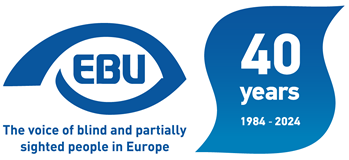Les Doigts Qui Rêvent, (Dreaming Fingers) was born in 1993 due to the total lack of access to TiBs (Tactile Illustrated Books) for visually impaired children in France.
A group of parents and a teacher, seeing no official answers, decided to react. One teacher in the group managed to produce one TiB (100 copies of a collage book) by sheer improvisation. But the success of this TiB proved that it was urgent to create a special workshop to produce TiBs.
Les Doigts Qui Rêvent is a publisher with charitable status.
Its aims are:
- to create and produce TiBs accessible to blind children with the same level of quality as books for sighted children.
- to help blind children in their social integration.
Their objectives include:
- Create and produce TiBs and distribute them at a normal price to all the same cultural places where the sighted find their books (public libraries, schools, museums, etc...)
- Call professional writers/illustrators to work in the tactile illustration field
- Develop international co-operation
- Foster the integration of blind children through activities in mainstream schools
- Sensitize public librarians to the need for TiBs in their libraries
- Develop research into TiBs in partnership with universities
- Help blind and partially sighted children from poor countries as much as possible
Their philosophy does not accept any human exploitation. So instead of sending production to a country with very low wages, they have created a local workshop providing a way for people with marked social disabilities to start to have a normal life and find a normal job.
Recently the American Printing House for the Blind (APH, who has been the leading provider of products and services for visually impaired people since 1878 in the US) announced that it will be awarding a Zickel award to Les Doigts Qui Rêvent (Dreaming Fingers) at its 150th annual meeting between October 4th and 6th in Louisville, Kentucky (USA).
This award is not awarded every year but only when APH identifies a person or organization who has worked exceptionally well for visually impaired and is worthy; very few non-Americans have gotten it. About 400 people from across the US, all specialists in the field are coming to the annual meeting where the award will be presented.
Visit their site for more information and the catalogue of their books.

